Pangborn 2025: Driving the Future of Sensory Science
MMR Research shares highlights from Pangborn 2025, where themes like AI, emotional impact, inclusivity, and strategy showed how sensory science is shaping the future of product development and consumer experience.
Pangborn 2025: Driving the Future of Sensory Science
The Pangborn Sensory Science Symposium 2025 in Philadelphia was a convergence of minds, methods, and machines. Over five days, sensory leaders, innovators, and newcomers explored the latest in consumer research, product development, and sensory-driven strategy. For MMR, it was a chance to contribute, listen, and connect with clients in meaningful ways.
From our client networking event at McGillin’s Ale House to our PX Menu spotlighting Philadelphia’s sensory food experiences, MMR’s presence extended beyond lecture halls. Most importantly, the conference reinforced critical themes shaping the future of sensory science and how MMR is turning them into commercial impact.
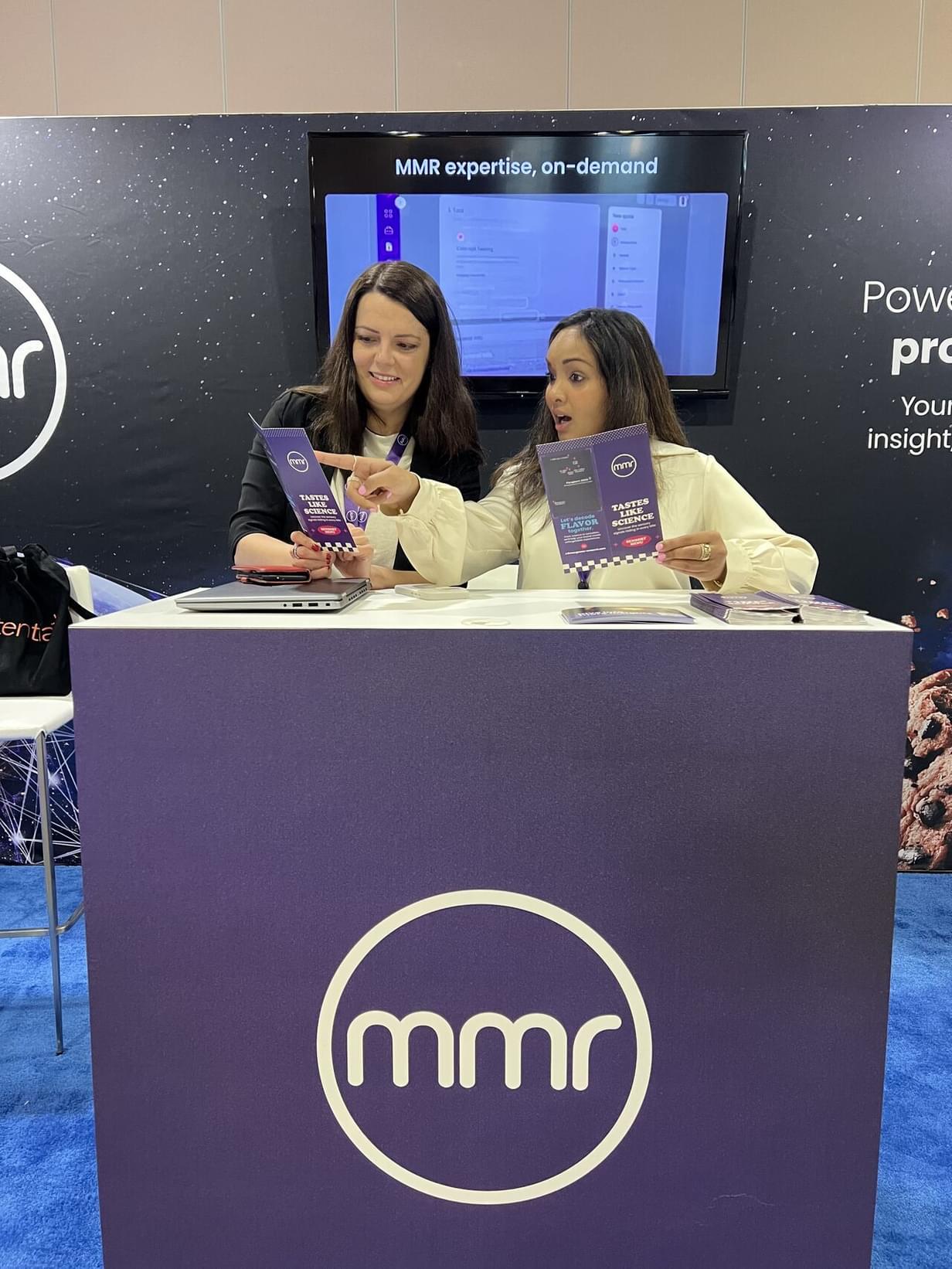
Designing for Joy and Emotional Impact
One consistent thread at Pangborn was the recognition that products are remembered for the emotions they spark, not just functional performance. Sessions highlighted that sensory science is about designing experiences that connect deeply.
Our workshop, The Joy Imperative, showed how motivational segmentation and AI-powered tools like Sensory Bot™ can reveal emotionally resonant product concepts. Real-world examples with Heineken and Danone illustrated how this approach opens new flavor territories aligned with consumer desires.
As one colleague noted: “There was far more focus on emotional research this year.” This emphasis balanced the heavy focus on AI, ensuring that human experiences remain central.
Why it matters: Products that evoke joy are remembered, recommended, and repurchased.
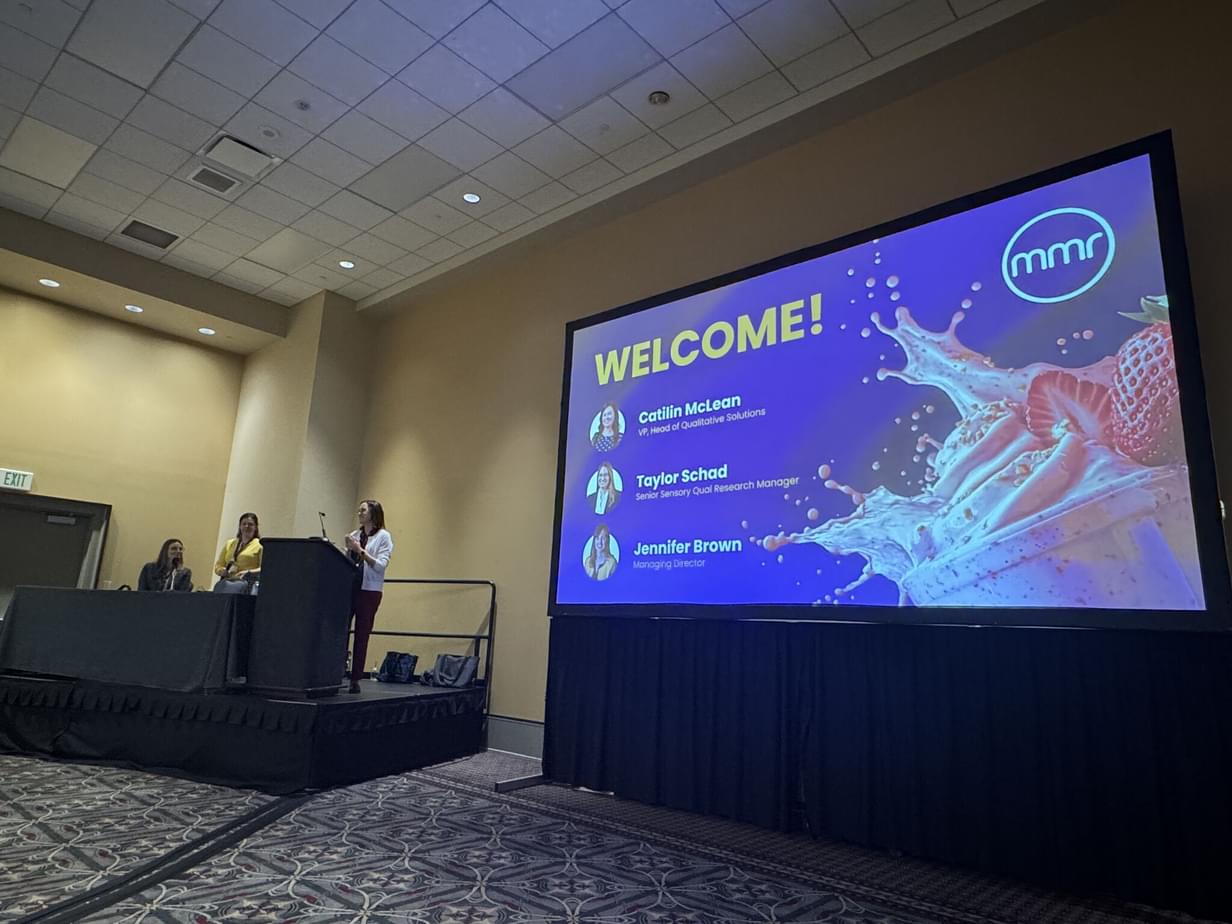
A New Paradigm for Product Development
A highlight for MMR was our Founder & Chairman, Prof. David Thomson’s oral presentation, An Essential New Paradigm for Product Development.
He introduced a framework that goes beyond immediate consumer reactions. By using five universal motivational segments shaped by emotional reward, brand cues, packaging, and product experience, he showed how to predict consumer choices with greater confidence.
This reflects a wider truth echoed across Pangborn: it’s not only about asking people what they like, but about uncovering what motivates them to choose. For clients, this offers a stronger foundation for innovation pipelines, launches, and long-term brand growth.
One colleague remarked, “This really captured what makes MMR unique. We go beyond surface insights, pioneering frameworks that connect emotional drivers to outcomes.”
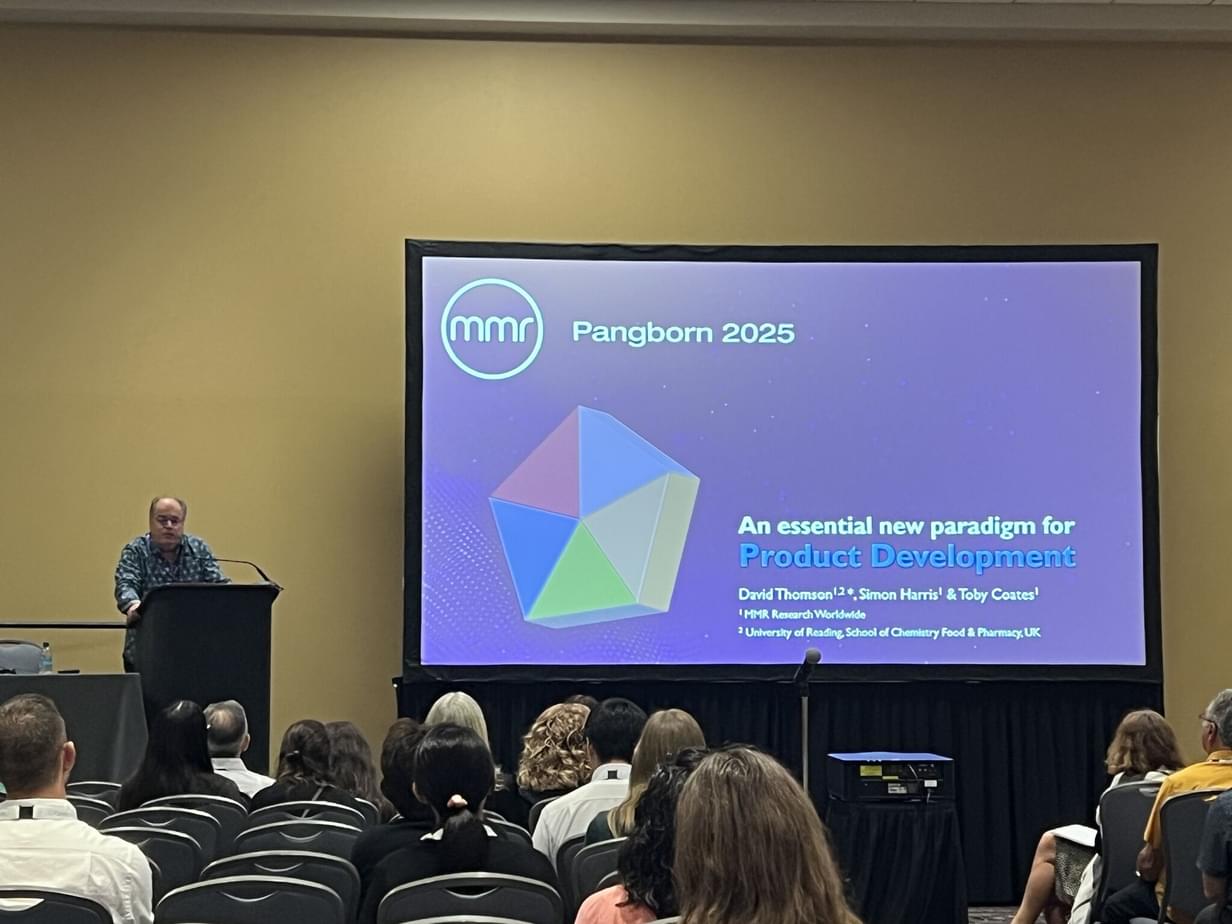
AI Everywhere: Promise and Practicality
Artificial intelligence was the headline act of Pangborn 2025. From fragrance development to predictive sensory models, AI appeared in nearly every track. Some attendees found the saturation overwhelming, but the excitement was undeniable.
Talks from Unilever showed AI’s role in fragrance formulation, while Google explored psychometric modeling for personalized soundscapes. MMR demonstrated how AI-driven personas and synthetic data can accelerate pipelines without losing human richness.
Colleagues noted several themes: predictive modeling, VR integration, video and audio analysis, and keeping humans in the loop. The last point resonated with clients who value both efficiency and empathy.
Why it matters: AI unlocks speed and scale, but its real value lies in helping researchers focus on what matters most, bringing consumers to life.
Inclusivity and Contextual Testing
Another defining theme was inclusivity, both in who we research with and where testing occurs. From L’Oréal’s work with Women of Color in fragrance testing to Curion’s studies in animal nutrition, the call for more representative and contextually grounded insights was clear.
MMR continues to pioneer here with immersive methods, global panels mirroring real-world conditions, and inclusive sensory frameworks ensuring no consumer is overlooked.
As one attendee noted: “This year felt much more human-centric. Research acknowledged emotion, diversity, and context.”
Why it matters: Inclusive insights ensure products land with authenticity and relevance across diverse groups and usage occasions.
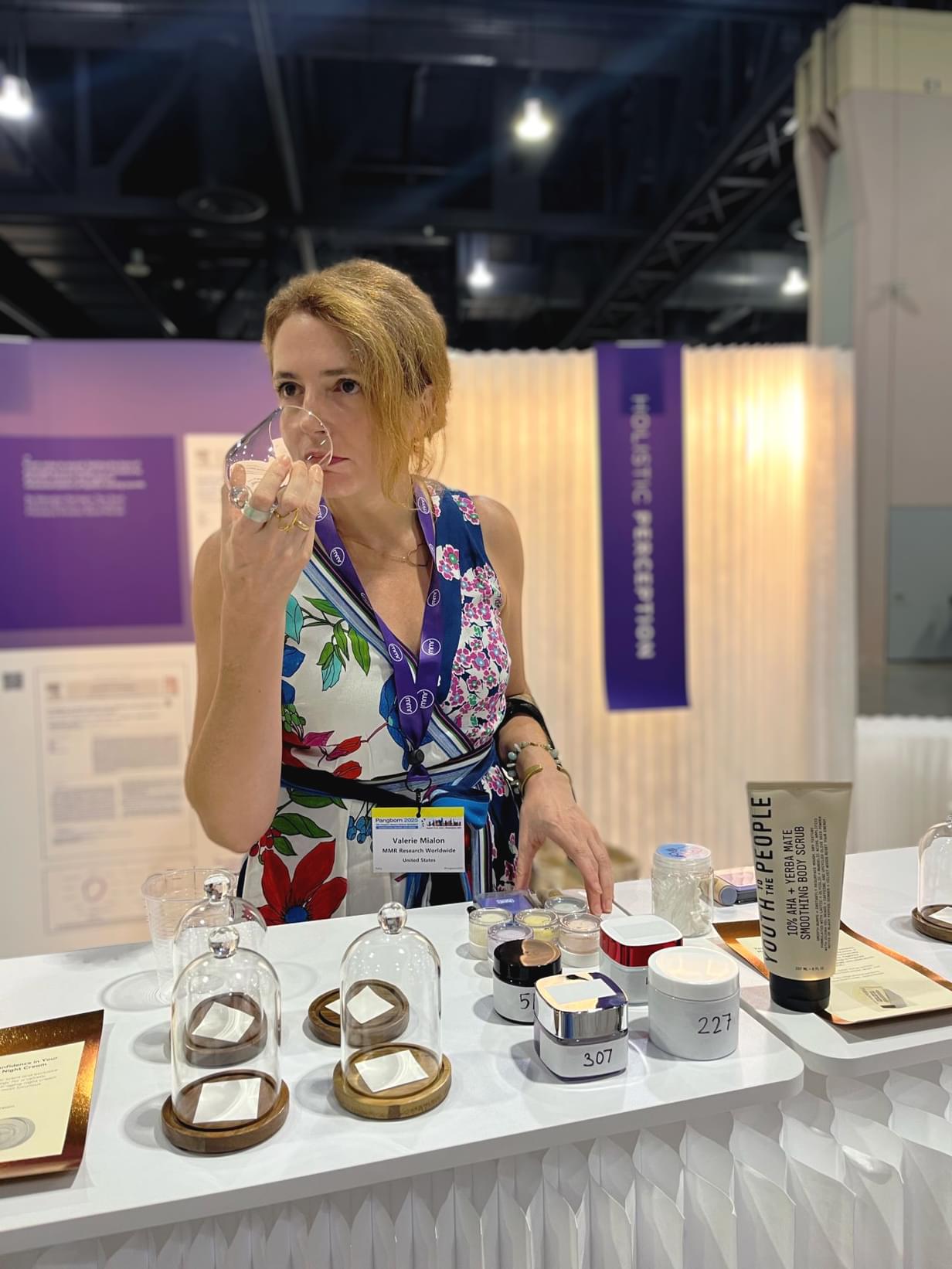
Sensory as Strategy
A fourth theme was sensory science as a strategic lever for business growth. Sensory insights are now shaping decisions from innovation pipelines to go-to-market strategies.
Talks ranged from neurogastronomy and texture perception to cross-modal design, underscoring sensory science’s broad reach. Colleagues stressed the importance of sensory databases as key assets for connecting insights across functions.
Why it matters: Sensory isn’t just technical; it’s a compass for navigating consumer desires, competitive landscapes, and category opportunities.
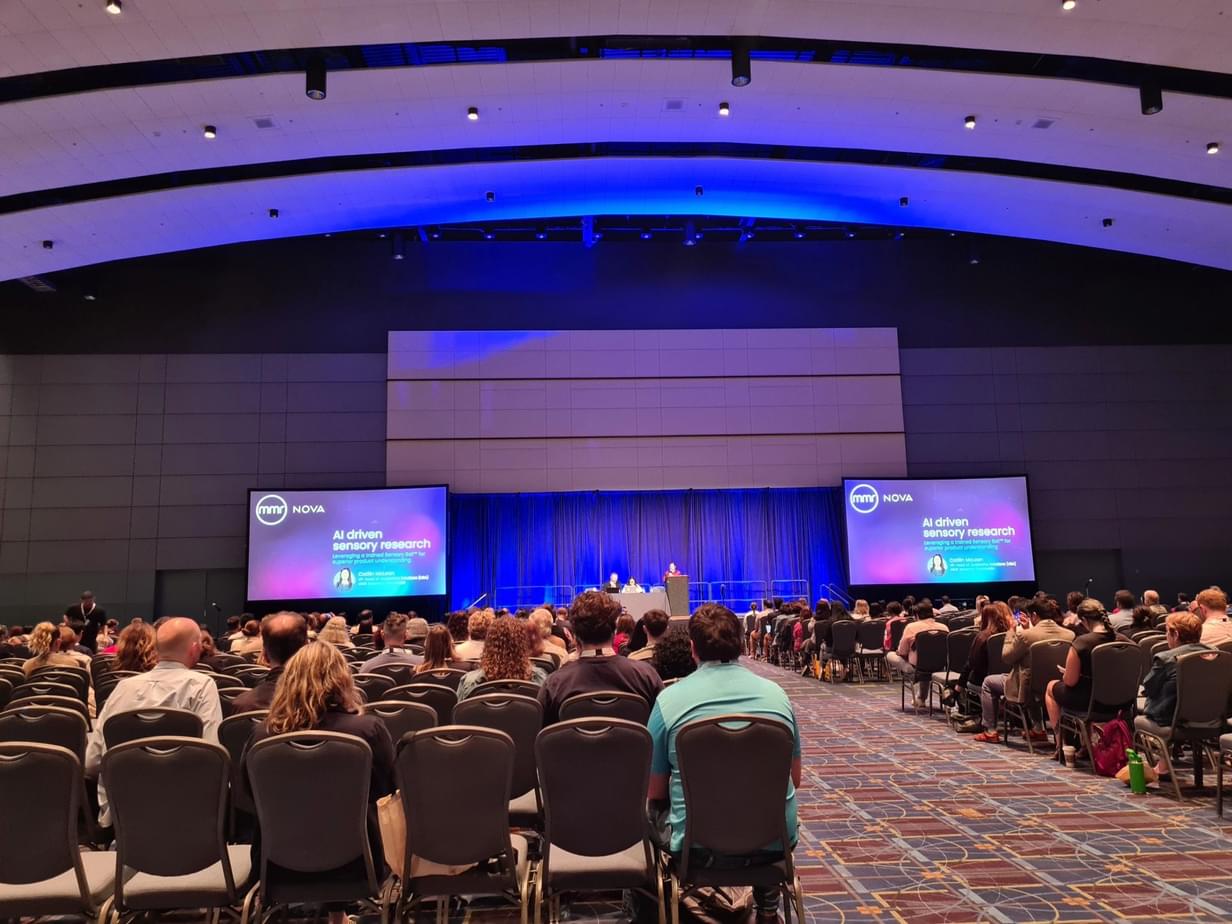
Celebrating Alexandra Kuzmina’s Award
Another proud moment for MMR at Pangborn came when Alexandra Kuzmina (Innovation Director, NOVA) was named winner of the Best Oral Presentation of the Sensometrics Session. Alex’s talk highlighted our collaboration with HEINEKEN, where we tested an Agentic Ideation Pipeline. This pioneering system integrates internal and external data sources to boost the novelty of new product and flavor ideas generated by AI persona tools.
This recognition not only celebrates Alex’s outstanding work but also reinforces MMR’s leadership in applying cutting-edge sensometric approaches to unlock richer, more future-facing innovation pathways for our clients.
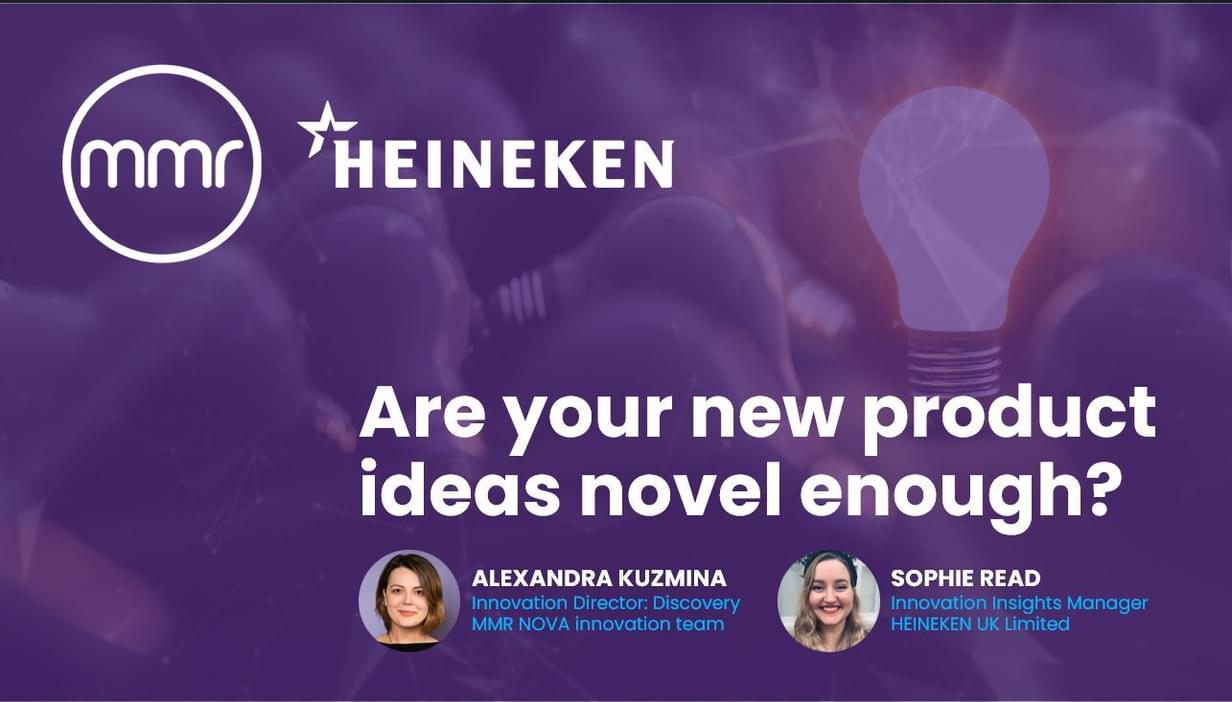
Building Bonds Beyond the Sessions
While technical sessions delivered insights, memorable moments often came outside the agenda.
Client Networking Event
On Sunday evening, before the symposium officially began, MMR hosted a private event at McGillin’s Olde Ale House. With over 50 clients and colleagues, the evening mixed conversation and celebration. It set the tone for the week, reinforcing that relationships underpin impactful partnerships.
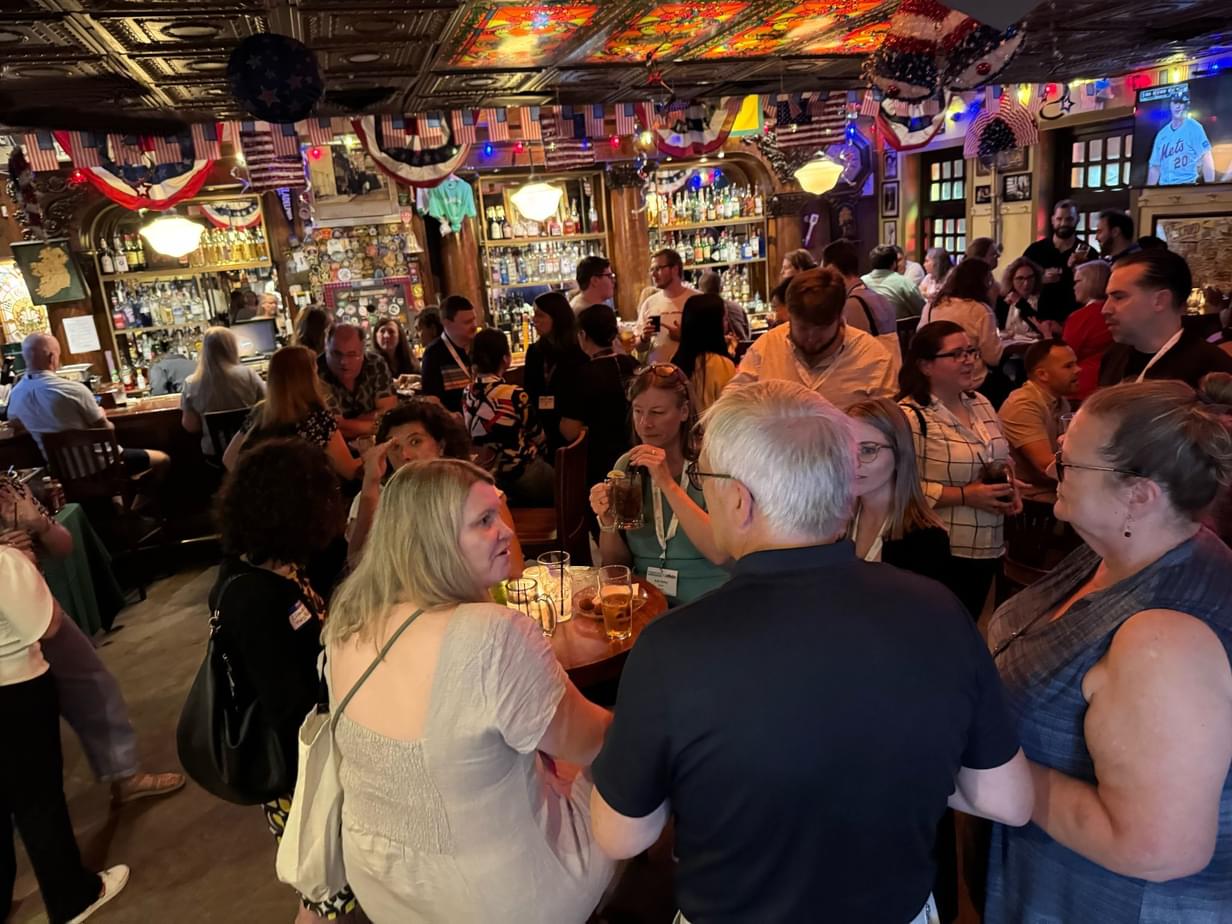
The Product Experience PX Menu
Throughout the conference, attendees received our Product Experience menu "Tastes Like Science", a guide to Philadelphia’s sensory-rich food spots. From markets to modern gems, it sparked discussions on how sensory principles shape everyday experiences, reinforcing our belief that product experience lives in the real world.
Take a look at MMR's PX Menu and discover some of Philadelphia’s most unforgettable product experiences.
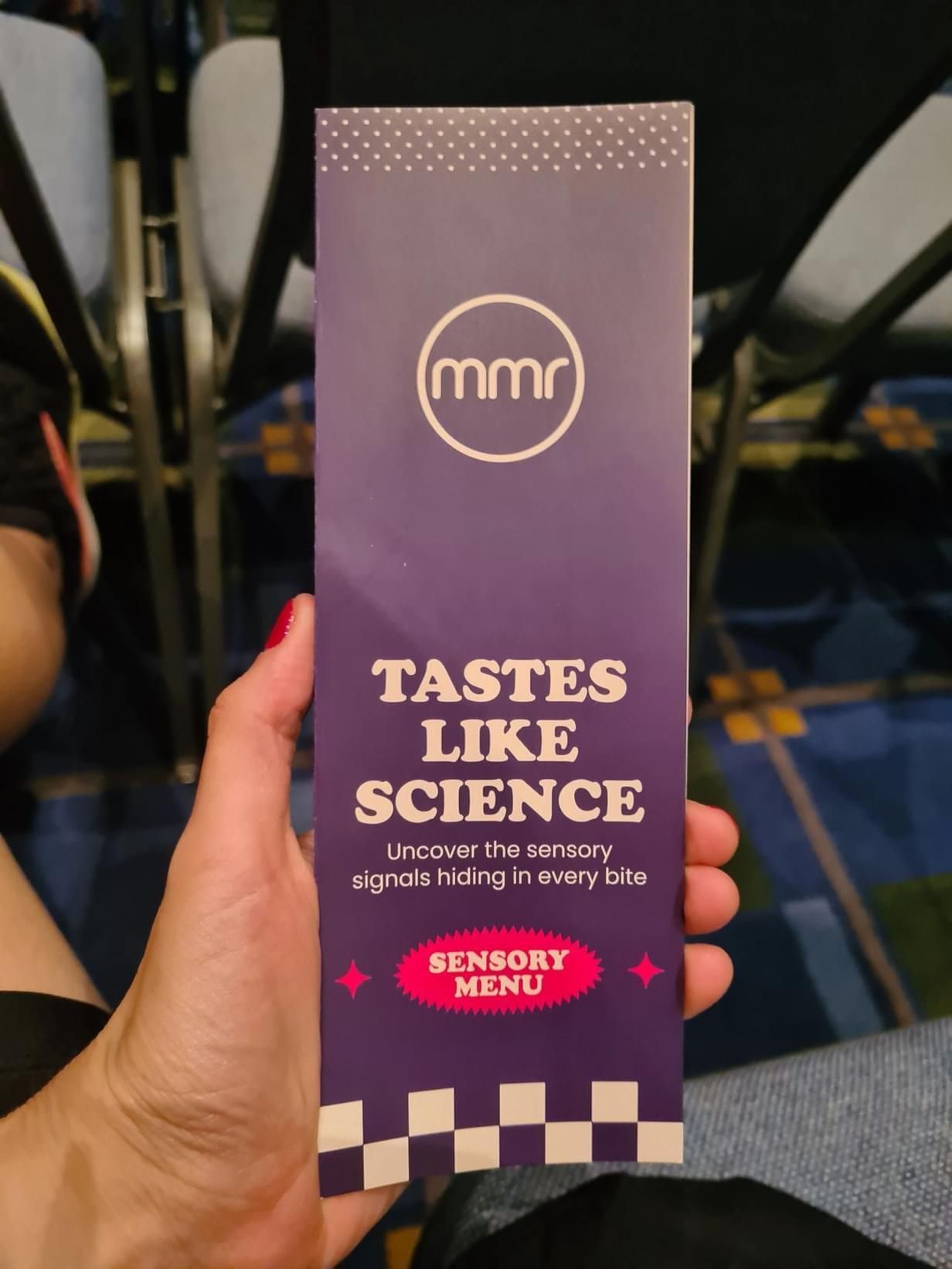
Engagement Through Demos
Feedback showed that interactive demos stand out. As one colleague put it: “People want workshops to be engaging and applicable, don’t make them think too hard, show them.” Our Joy Imperative session and Sensory Bot demos did just that, sparking conversations beyond the symposium walls.
Looking Ahead
Pangborn 2025 reflected a field in transformation, driven by technology but anchored in human experience. For MMR, it was both a chance to showcase leadership and to be inspired by the ambition of peers and clients.
As sensory science evolves, one thing is clear: the future belongs to those who balance innovation with empathy, speed with rigor, and data with design. That’s the path we’re committed to at MMR, and Pangborn 2025 only strengthened our resolve.